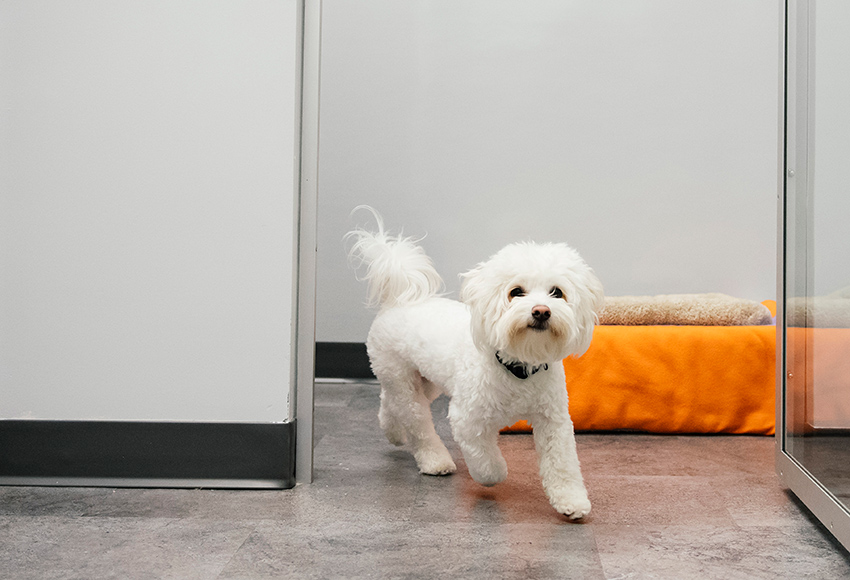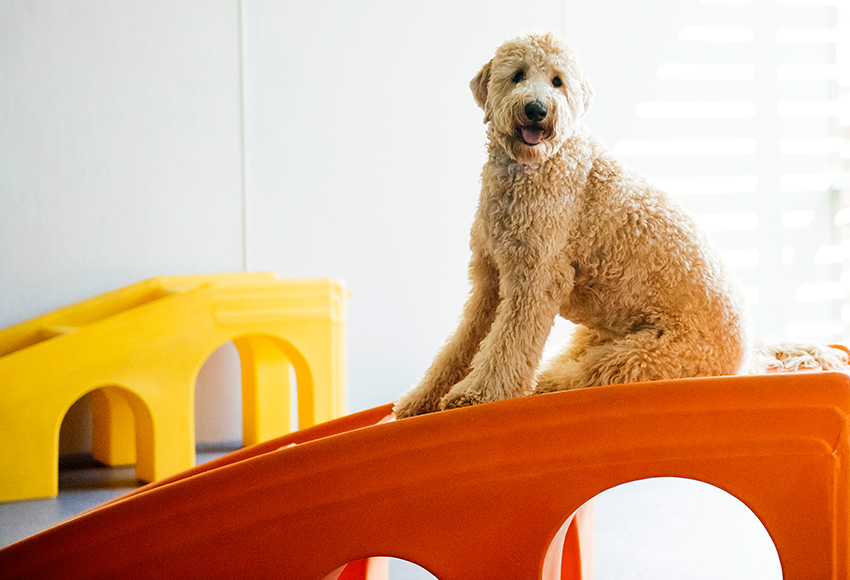Soothing Your Pup: How to Help Your Dog With Seasonal Allergies
April 19, 2024

Written by Jennifer Connelly
As spring blooms and summer approaches, many of us revel in the beauty of blossoming flowers and longer days. However, for our pups, these seasons can bring discomfort in the form of seasonal allergies. Just like humans, dogs can suffer from allergies to pollen, grass, mold, and other environmental factors. If your canine companion is scratching, licking, or sneezing more than usual, they might be experiencing seasonal allergies. In the Lehigh Valley and Northampton County, there are so many types of allergens in the air that your pups could be irritated by. Fortunately, there are several remedies and practices that you or Dogtopia of Easton can help you with to alleviate their symptoms and keep them comfortable.
Regular Bathing:
Scheduling your dog to have a bath with our hypoallergenic shampoo can help remove allergens from their fur and skin. If you are bathing at home, be sure to rinse thoroughly to eliminate any lingering irritants. However, avoid bathing them too frequently, as this can strip their skin of natural oils and exacerbate the problem. Determining the proper bathing schedule depends on the breed and their activity level. Our groomers are always happy to evaluate your pup and offer suggestions at no cost!
Clean Living Spaces:
Just like in humans, a clean environment can make a significant difference for allergy-prone dogs. Regularly vacuuming carpets, washing bedding with a gentle detergent, and dusting surfaces can help reduce the presence of allergens indoors. Additionally, consider using air purifiers with HEPA filters to capture airborne particles. At Dogtopia of Easton, maintaining clean air throughout the entire facility is something we are proud to be able to do. Our facility has constant circulated purified air, using UV-C technology to kill bacteria, viruses, and particles in the air.
Allergy-Friendly Diet:
Certain foods can help support your dog’s immune system and alleviate allergy symptoms. Look for dog foods that contain omega-3 fatty acids, which have anti-inflammatory properties. You can also incorporate natural antihistamines into their diet, such as local honey (in small amounts) or supplements like quercetin and bromelain, after consulting with your veterinarian. At Dogtopia of Easton, our team takes allergies very seriously. Our daycare management system provides clear alerts for dogs with allergies, which our team can all see to properly provide food for your pup. Our treats and events always have chicken-free ingredients because chicken is one of the most common food allergies in dogs.
Moisturizing Paw Balms:
Pollen and other allergens can accumulate on your dog’s paws during outdoor excursions, leading to irritation. Applying a moisturizing paw balm before walks can create a protective barrier and prevent allergens from penetrating their skin. Be sure to choose a product specifically formulated for dogs, as human products may contain ingredients that are harmful if ingested. Did you know Dogtopia has their own formulated paw, nose, and elbow balm? Our balm is formulated by canine experts, gentle enough for the most itchy allergies, and even works great as a chap stick for humans!
Oatmeal Baths:
Oatmeal is known for its soothing properties, making it an excellent remedy for irritated skin. Our groomers offer oatmeal baths with a gentle formula shampoo, or you can make your own! You can prepare a gentle oatmeal bath for your dog by grinding plain, uncooked oats into a fine powder and mixing it with warm water. Allow your dog to soak in the bath for 10-15 minutes to relieve itching and inflammation.
Supplement with Probiotics:
Probiotics can help promote a healthy gut microbiome, which plays a crucial role in regulating the immune system. Adding a canine-specific probiotic supplement to your dog’s diet may help reduce allergic reactions and improve overall well-being.
Consult with a Veterinarian:
If your dog’s allergies persist or worsen despite your best efforts, it’s essential to seek guidance from a veterinarian. They can perform allergy testing to identify specific triggers and recommend appropriate treatment options, such as prescription medications or immunotherapy.
In conclusion, seasonal allergies can make life uncomfortable for our canine companions, but with the right approach, we can help alleviate their symptoms and improve their quality of life. By implementing these at-home remedies, reaching out to our trusted Groomers, and consulting with a veterinarian as needed, you can support your dog through allergy season and enjoy many more adventures together in the great outdoors.





